Earth Week 2025
Join King County Department of Natural Resources and Parks as we celebrate the 55th Anniversary of Earth Day!
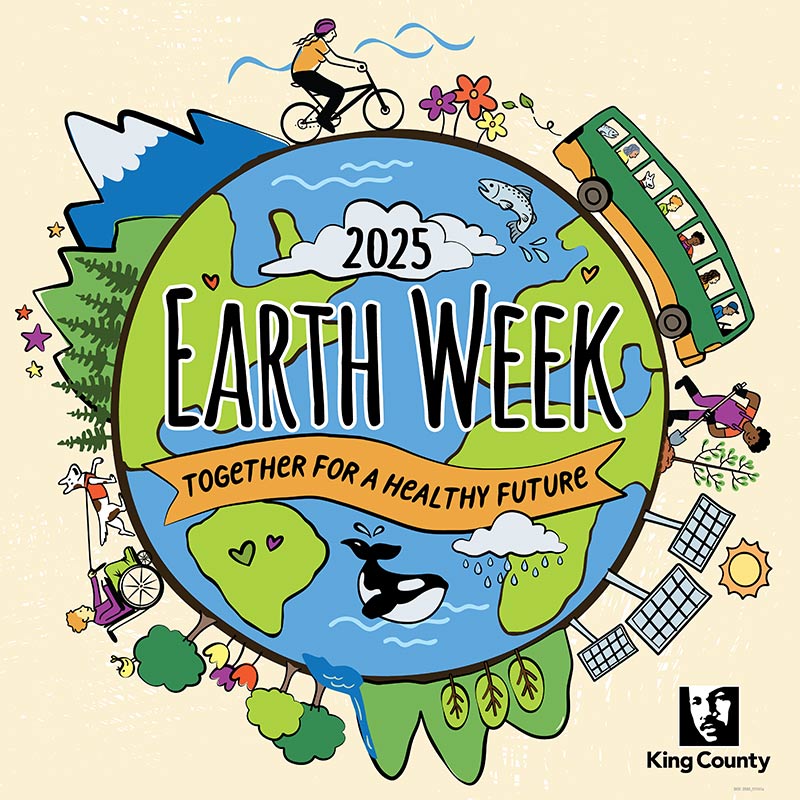
Earth Day is a special moment for us. It’s an opportunity to thank our employees and partners who work year-round to protect and restore the natural environment for the people, fish, and wildlife of King County. It’s also a time to discover what actions we can all take action to promote a healthier, more resilient, more sustainable future.
Join us April 19-26 as we highlight simple ways to care for our environment, whether it’s volunteering, reducing waste, supporting the local food economy, choosing non-motorized transportation, removing noxious weeds, or enjoying our regional parks and trails.
Together, we can protect, preserve, and restore the natural spaces that connect us all.

Earth deserves more than a day
Earth Day is an opportunity to appreciate the spectacular natural environment that defines our region and to take action that promotes a healthier, more resilient, more sustainable future. Join each day during Earth Week as we celebrate progress we’re making with partners and share personal actions that all of us can take.
Join a volunteer event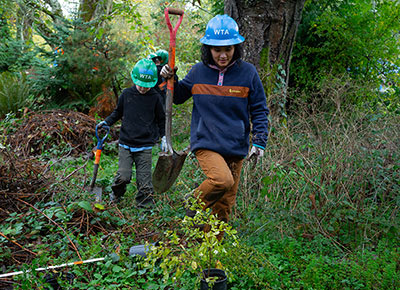
Roll up your sleeves and make a difference! Our parks, trails, and natural spaces thrive thanks to the dedication of volunteers. Whether you're removing invasive plants, restoring habitat, or cleaning up trails, your efforts help keep our environment healthy and accessible for all.
King County Parks volunteer events
April 19 – Cecil Moses Memorial Park
Join us for a hands-on restoration event at Cecil Moses Memorial Park as part of Duwamish Alive! This collaborative effort improves the health of the Green-Duwamish Watershed through community-led restoration, river cleanups, and salmon habitat improvements. Volunteers will help restore vital greenspaces and enhance water quality for salmon and wildlife.
April 26 – Skyway Park
Help restore Skyway Park, a vital green space in the West Hill community. The park is home to three wetlands that form the headwaters of Taylor Creek, a salmon-bearing stream that flows into Lake Washington. Join us and our partners in creating a thriving habitat for people and wildlife.
April 26 – Miller Creek Trail in Burien
Celebrate Earth Day by improving urban forest health along the Miller Creek Trail in Burien! Volunteers will remove invasive weeds and help restore a better ecosystem for both people and salmon.
April 26 – Arbor Day Celebration in Normandy Park
Join the Miller-Walker Basin Stewardship Program and the City of Normandy Park for an Arbor Day celebration! Learn about salmon in Miller and Walker Creeks, discover ways to keep stormwater clean, and take home a free tree. Activities include a craft station, book exchange, and expert tree-planting tips.
Protect floodplains for future generations
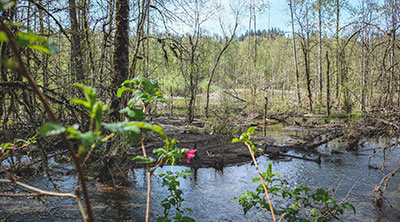
Spring and summer are great times for home projects, but if you live in a floodplain, permits are required before you make repairs, build, excavate, grade, or fill on your property. Floodplains are critical natural areas surrounding lakes, rivers, streams, and Puget Sound. Permits help ensure smart, safe building practices that protect people and property now and in the future.
Learn more about floodplain permits and how they help our communities stay safe.
Easy ways to keep our water clean and reduce flood risks
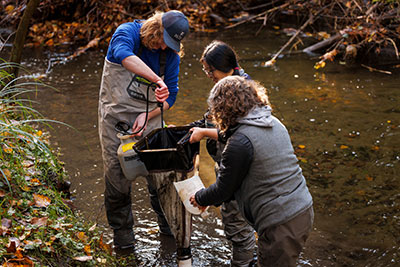 Taking care of the land around our rivers, lakes, and streams helps reduce flood risks and improves water quality. Healthy floodplains slow runoff, store floodwater, and provide habitat for fish and wildlife. Here are a few simple actions you can take:
Taking care of the land around our rivers, lakes, and streams helps reduce flood risks and improves water quality. Healthy floodplains slow runoff, store floodwater, and provide habitat for fish and wildlife. Here are a few simple actions you can take:
- Never dump waste in storm drains.
- Properly dispose of litter and pet waste.
- Sweep sidewalks, driveways, and gutters to keep pollutants out of waterways.
Learn more about the benefits of natural floodplains and water conservation.
Safely dispose of hazardous waste
Got old batteries, paint, pesticides, or motor oil? The Wastemobile offers a free and convenient way to dispose of household hazardous waste throughout the year. If you can’t make it to a Wastemobile event, visit one of King County’s permanent hazardous waste disposal sites.
Find a Wastemobile event near you
Make the switch to safer cleaning products
Ditch harsh chemicals and switch to safer, eco-friendly cleaning alternatives! Common household items like vinegar, baking soda, and lemon juice make great substitutes for store-bought cleaners. Reducing harmful chemicals in your home helps protect your health and the environment.
Check out DIY cleaning recipes and tips for choosing safer products.
Spring into natural gardening
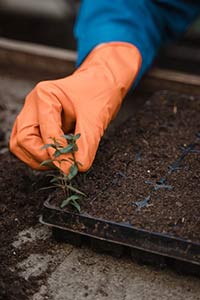
These natural and chemical-free tips will help you maintain a thriving garden and help keep King County’s waterways and ecosystems safer and healthier.
- Upgrade your soil health: Mixing compost in with your existing soil is an easy way to support healthy plant growth.
- Weed by hand to avoid harmful herbicides: Ditch the chemicals and consider using tools like long-handled weed pullers for easier weed removal.
- Choose natural pest control methods: When dealing with pests, opt for organic pesticides if necessary and consider natural pest control methods like introducing beneficial insects.
 Translate
Translate


